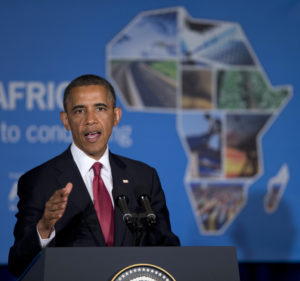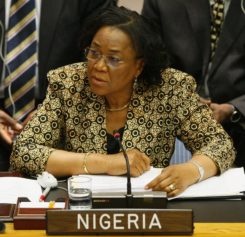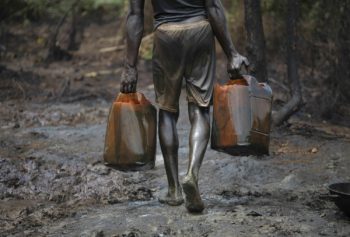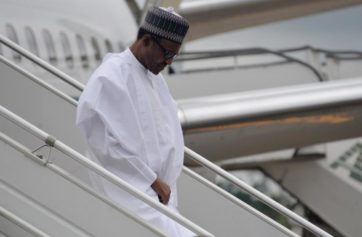
Not too kindly, according to Adekeye Adebajo, executive director of the South Africa-based Centre for Conflict Resolution. Adebajo wrote a piece in yesterday’s Business Day that claims Obama has fallen far short of his pledges in most areas concerning Africa, including security, governance, education and energy.
“As an individual, Obama remains popular across Africa, where many people are proud that one of their own (with a Kenyan father) has ascended to the most powerful office in the world,” Adebajo wrote. “The early lustre of Obamania has, however, clearly faded, as the realization has gradually dawned on Africans that even a powerful leader with close family ties to the continent cannot change 55 years of ‘malign neglect’ of their continent by the US.
“The enduring continuity of US foreign policy has trumped the early idealism of an extraordinary individual of African ancestry. Obama has not only failed to remake Africa, he has also failed to change the US and the world.”
About the only area where Adebajo gave him a respectable grade was in the fight against HIV/AIDS—though that was mainly because he continued George Bush’s ambitious President’s Emergency Plan for AIDS Relief, which had provided treatment to 1.7-million HIV/AIDS sufferers between 2003 and 2008. Obama managed to increase the number of people receiving treatment to an impressive 6.7-million by 2013—all while cutting some funding from the program.
Adebajo wondered whether Obama’s announcement this month was premature that he was withdrawing the 3,000-strong military contingent that he had sent last October to build hospitals in Liberia and Senegal in the fight against Ebola—which has thus far killed 9,268 people in Liberia, Sierra Leone and Guinea. Although Ebola has been contained, Adebajo pointed out that it was not yet eradicated.
Adebajo quoted Obama as saying in a 2009 speech in Ghana that he would support “strong institutions, and not strong men,” but says Obama instead continued the militarization of Africa, sending troops across the continent—and selectively choosing which democracies the U.S. would support.
Launched in 2012, Obama’s New Alliance for Food Security and Nutrition was supposed to create 650,000 jobs and benefit more than five million smallholder farmers. But Adebajo claims the program has fallen far short of that, creating just 37,000 jobs by August of last year and reaching three million smallholder farmers.
“Civil society critics have argued that the program has benefited large foreign agri-business at the expense of African smallholders,” Adebajo wrote. “They also accused the alliance of ‘neocolonial’ tendencies in forcing African governments to change laws in favor of foreign investors, and noted the lack of effective monitoring and accountability mechanisms in the program to measure its effect on hunger and poverty.
He gave Obama credit for making strides in education, with the use of various programs to improve reading across the continent, as well as emergency education to 150,000 children in South Sudan and scholarships and other support for girls in Liberia, the Democratic Republic of Congo, Mozambique, Tanzania and Côte d’Ivoire. He said Obama’s Young African Leaders Initiative trained 500 African young leaders under the age of 35 during six weeks of intensive executive leadership training, networking and skills-building in U.S. institutions in the areas of business and entrepreneurship, civic leadership and public management.
“These programs, however, are unlikely to be transformative,” Adebajo wrote.
He says Nigeria has been devastated by the U.S. decision to stop importing Nigerian oil for the first time since 1973 because of the massive increase in U.S. shale production, by which the U.S. now rivals Saudi Arabia as the world’s largest producer of liquid petroleum. Nigeria was traditionally one of the top five oil suppliers to Washington, but no more.
The drop in U.S. oil imports has also affected Algeria, Libya and Angola.
Adebajo noted that while this drop in U.S. imports could have serious implications for African oil exporters, forcing them to send more supplies to Asia, it “could also allow the U.S. to promote democracy more consistently in these countries.”
Finally, Adebajo considered it most telling that Obama’s first lengthy visit to Africa didn’t happen until his second term, June and July 2013.
This “underlined the continuing low priority of the continent for US foreign policy,” Adebajo wrote. “There remains a lingering suspicion that Obama mainly views Africa as ‘Europe’s backyard,’ to be left to old colonial powers, France and the UK to ‘fix.'”


